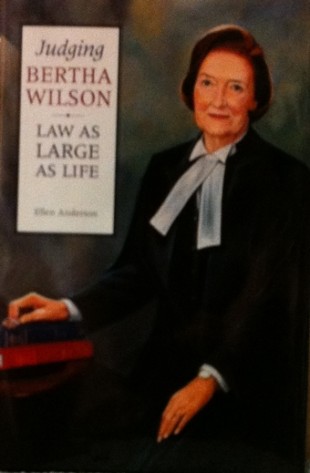by Ellen Anderson, Lawyer, Barrie, Ontario. Published with the University of Toronto Press, 2001.
Bertha Wilson is the first woman to be appointed to the Ontario Court of Appeal. She is the first woman to be appointed to the Supreme Court of Canada at that critical moment when the Charter was entrenched. Nevertheless, Bertha Wilson has never considered herself to be a feminist. But neither has she ever backed off from controversy, a reputation sustained in this authorized intellectual biography. The early Charter years were turbulent times. Wilson is remarkably frank about the many issues affecting judicial decision-making as the Court struggled with Charter interpretation. In this intriguing biography, we come to understand what drove the sense of duty impelling Wilson to take on so extraordinary a burden of dissents and concurrences.
The Bertha Wilson story begins with her Scottish values and experiences and it concludes with her gruelling years on the Royal Commission on Aboriginal Peoples. Before judging, Wilson said, a judge must “enter the skin.” Seen from an intimate and even affectionate perspective, there can be no doubt Bertha Wilson is one judge who really did make a difference.


